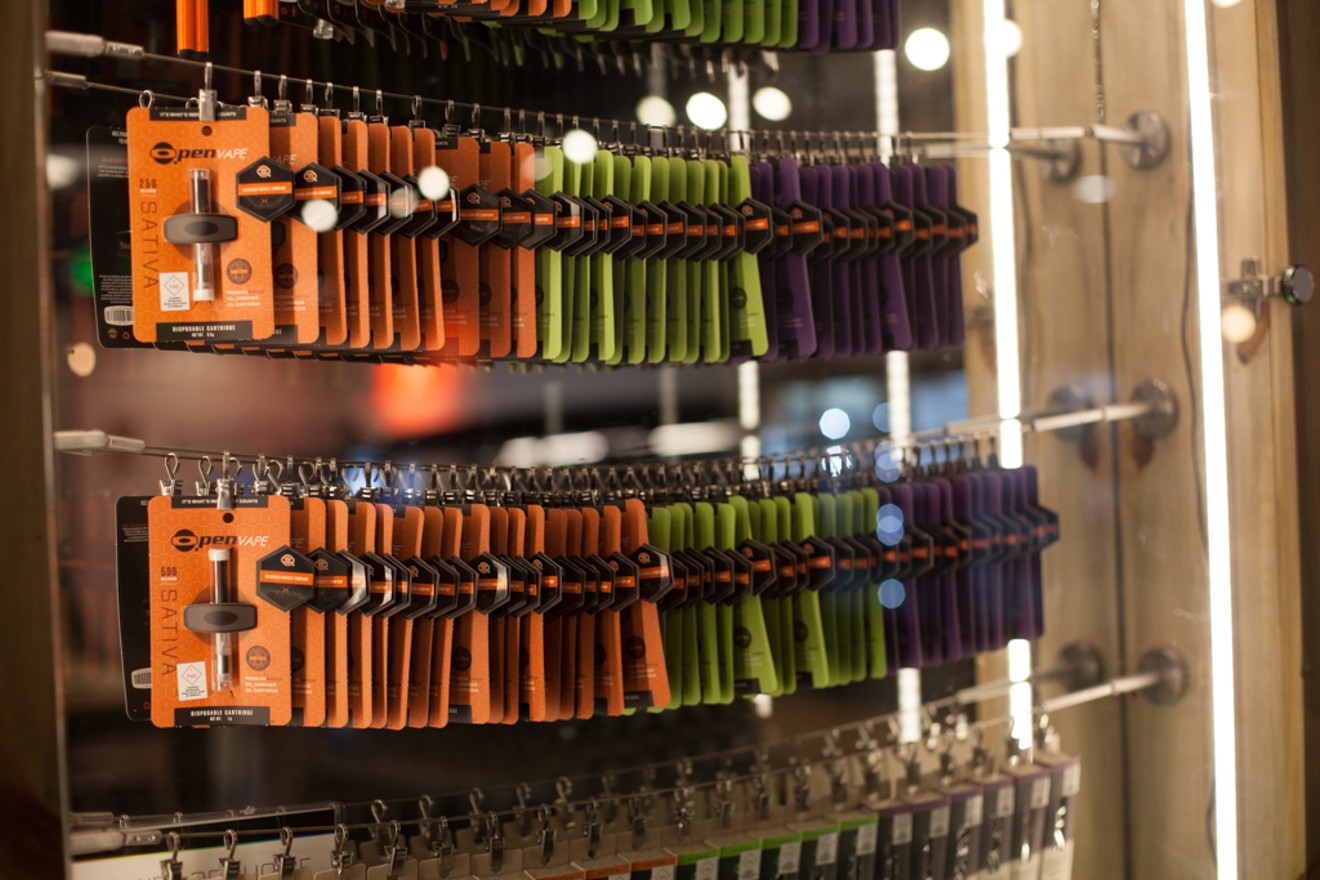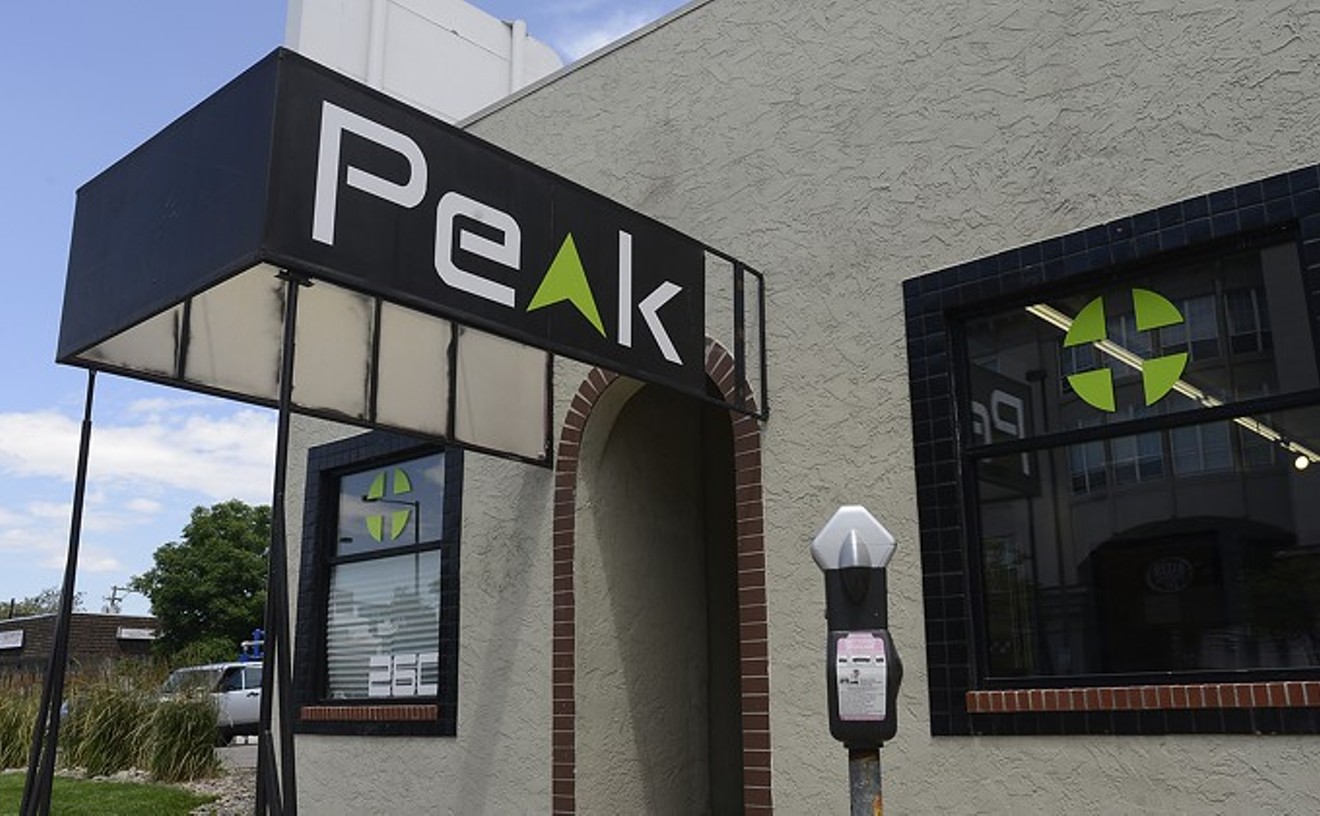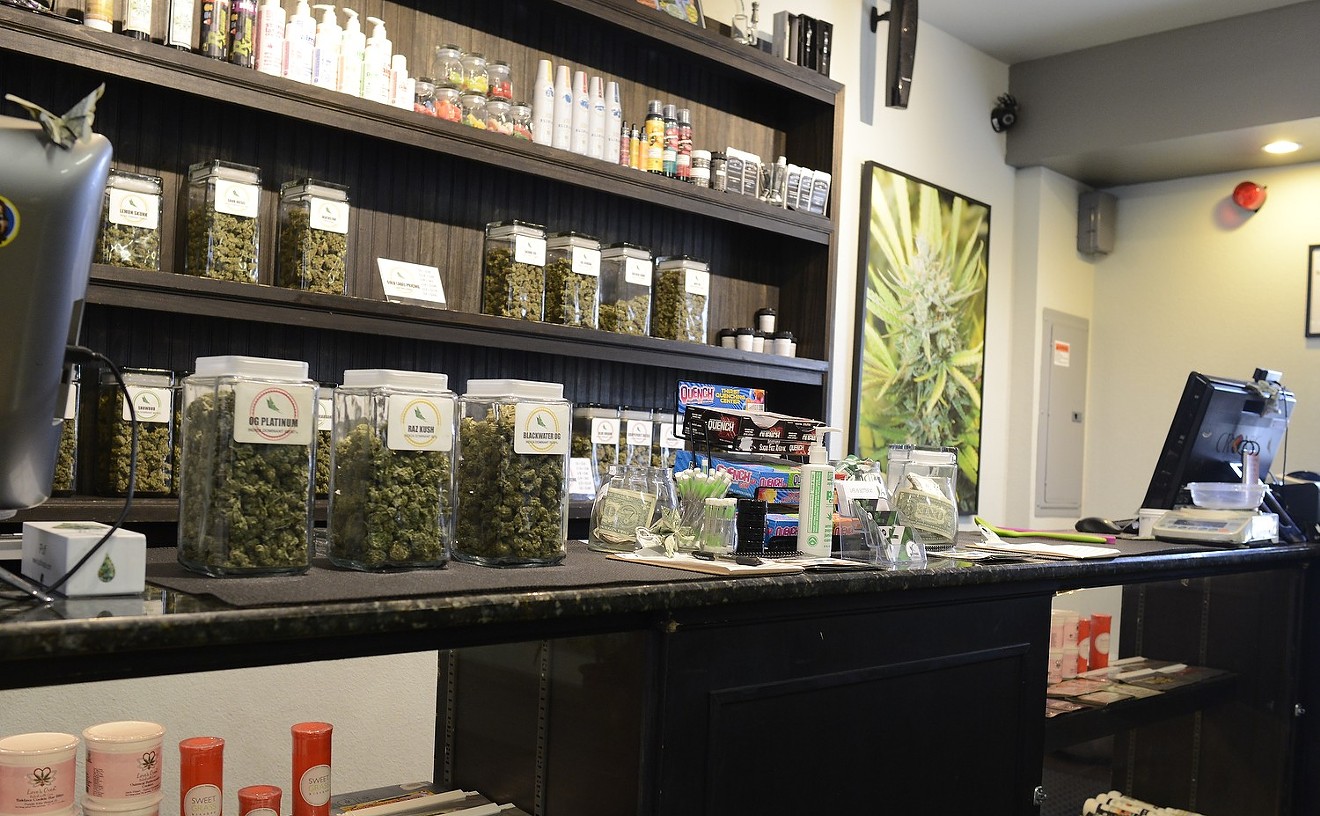Dispensary shelves across Colorado are about to become more consistent because of a new distribution law, according to several cannabis business owners. The law, signed in June and effective July 1, allows couriers and distributors to store cannabis inventory in third-party locations and also gives them more time to ship products.
Independent cannabis distributors previously had to take products from one licensed facility, such as a cultivation or infused-product facility, directly to a dispensary. Transfers that took longer than 24 hours were a violation under state law, and the products had to be returned to the facility of origin. Now, under the new law, companies with medical and retail transfer licenses have seven days to transport products to retail and medical marijuana businesses across Colorado.
Unlike liquor distributors, cannabis distributors in Colorado aren't allowed to buy products from manufacturers and then sell them to retailers. Instead, they act as middle men who simply transport the products for a fee. The extra time and ability to store products will make inventory more readily available, according to Pat Duddy, owner and founder of cannabis distributor Green Parcel Service.
"Under the 24-hour rule, you had to pick up products in the morning and drop them off in the same day, which is pretty tough when you're picking up in Denver and need to drive seven hours to Durango or Telluride. I could only pick up from ten production facilities or edibles and concentrate companies at a time," Duddy says. "This change allows for more capacity for us, and dispensaries don't need to rely on last-minute orders anymore."
Green Parcel Service was the first company to receive licenses to store and transport medical and recreational products, which it will ultimately deliver to around 600 dispensaries in Colorado. According to Duddy, concentrate and edibles companies should benefit the most from the looser restrictions; consumers in more remote areas will, too.
"Most edible companies will be in 300 to 500 dispensaries, whereas wholesale growers don't have as much product and are in ten to twenty. So it'll have a much bigger impact on infused products," Duddy says. "There's enough production facilities in Denver for the dispensaries here, but in Pueblo or Telluride, there's not enough distribution."
There are 263 licensed infused-product manufacturers in Colorado; 104 of those are in Denver, according to the Marijuana Enforcement Division. Duddy says that most of the state's 159 infused-product licenses issued to businesses outside of Denver are for dispensaries that make infused products, with popular wholesale brands like Incredibles, Dixie, The Lab and Wana rarely setting up their headquarters past Boulder. The new laws should allow consumers in rural areas as far away as Montrose or Sedgwick to have more regular access to these brands, Duddy explains.
Denver dispensaries that source their own flower and can distribute internally won't be affected much by the new law, according to Green Dragon operations manager Alex Levine, who oversees operations at eleven dispensaries around the state. However, dispensaries that outsource most of their flower or consumers at one-off pot shops with fewer resources could see a steadier flow of products, he says.
[
{
"name": "Air - MediumRectangle - Inline Content - Mobile Display Size",
"component": "12017618",
"insertPoint": "2",
"requiredCountToDisplay": "2"
},{
"name": "Editor Picks",
"component": "17242653",
"insertPoint": "4",
"requiredCountToDisplay": "1"
},{
"name": "Inline Links",
"component": "18838239",
"insertPoint": "8th",
"startingPoint": 8,
"requiredCountToDisplay": "7",
"maxInsertions": 25
},{
"name": "Air - MediumRectangle - Combo - Inline Content",
"component": "17261320",
"insertPoint": "8th",
"startingPoint": 8,
"requiredCountToDisplay": "7",
"maxInsertions": 25
},{
"name": "Inline Links",
"component": "18838239",
"insertPoint": "8th",
"startingPoint": 12,
"requiredCountToDisplay": "11",
"maxInsertions": 25
},{
"name": "Air - Leaderboard Tower - Combo - Inline Content",
"component": "17261321",
"insertPoint": "8th",
"startingPoint": 12,
"requiredCountToDisplay": "11",
"maxInsertions": 25
}
]












